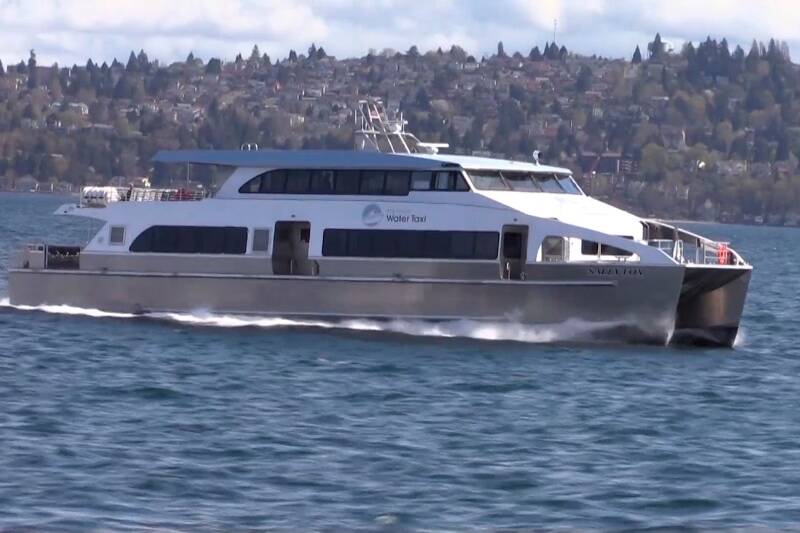A program to improve foot-ferry service between Seattle and Vashon looks likely to pass as both houses of Washington’s legislature hammer out their amendments to the state budget.
Washington operates on a two-year budgeting and legislative cycle. In even years (like this one), legislators have a shorter session and are tasked with making adjustments and supplemental budgets to the biennial budget that they set the year before.
March 1 is the last day to pass most bills, and March 7 is the final day of this legislative session. Traditionally, passing the budget is one of the legislature’s final acts.
The House and Senate Transportation Committees passed their supplemental transportation budgets over the last week, and both include $3.17 million to enhance water taxi service, operated by King County, between downtown Seattle and north Vashon.
Currently, the water taxi runs from 5:30 through 8:15 a.m. and 4:30 through 6:58 p.m. on weekdays, leaving a gap in the middle of the day. The proposed funding would increase weekday, midday service on the route. Specific details on that augmented service aren’t yet provided, and would need to be hammered out by King County.
With the money already included in both the House (SHB 2134) and Senate (SSB 5947) bills, it’s likely — though not guaranteed — to survive the red pen that Republicans and Democrats will take to the budget as the legislative session winds down.
Boosting water taxi service has long been touted as a way to help Vashon’s beleaguered transportation system and supplement the island’s rocky Triangle Route. State Rep. Emily Alvarado promised to pursue that goal during a community forum last year and pushed for the funding’s inclusion in the House budget proposal.
In 2021, WSF reduced the Triangle Route, which connects the north end of Vashon to Fauntleroy on the east and Southworth on the west, from a three-boat schedule to two boats. In January, the agency announced that lasting restoration on all of its routes, including the Triangle, will likely have to wait until the agency can get its first new ferries — at least 2028.
WSF has pledged to try to boost service on the Triangle Route when possible, and the route is considered the highest priority for such spontaneous, seasonal upgrades, according to the new Service Contingency plan released by WSF in early January.
Nothing is final until the budget passes both houses of the legislature and is signed into law by the Governor. And meanwhile, as the legislature enters its final stretch, Democrats are banking on the Climate Commitment Act — and voter support of it — to fund other major upgrades and investments in the state ferry system.
The Beachcomber will follow up on those investments to the ferry system and more following the close of this year’s legislative session.


